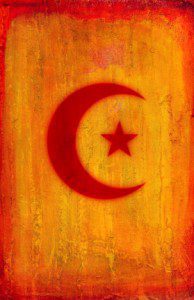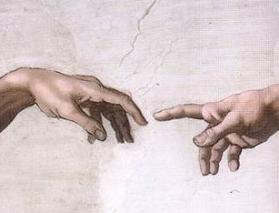This piece was originally published at The Christian Post on June 11, 2012.
By Paul Louis Metzger and John W. Morehead
 A recent Associated Press article stated, “An Egyptian court sentenced 12 Christians to life in prison and acquitted eight Muslims on Monday in a case set off by religious tensions in the country’s south.” The article spoke of complaints of gross injustices committed against Christians by the legal and law enforcement system in Egypt. This kind of news also tends to set off tensions abroad, at least in some circles in the West.
A recent Associated Press article stated, “An Egyptian court sentenced 12 Christians to life in prison and acquitted eight Muslims on Monday in a case set off by religious tensions in the country’s south.” The article spoke of complaints of gross injustices committed against Christians by the legal and law enforcement system in Egypt. This kind of news also tends to set off tensions abroad, at least in some circles in the West.
We have had numerous conversations with fellow Evangelicals who fear that this kind of treatment or worse is what may await us in the West as Islam grows in Europe and America. Political conservatives and many Evangelical Christians in America are generally more wary of Islam than those of other political and religious affiliations. According to one study, “Approximately two-thirds of Republicans, Americans who identify with the Tea Party movement, and Americans who most trust Fox News agree that the values of Islam are at odds with American values. A majority of Democrats, Independents, and those who most trust CNN or public television disagree. Major religious groups are divided on this question. Nearly 6-in-10 white evangelical Protestants believe the values of Islam are at odds with American values, but majorities of Catholics, non-Christian religiously unaffiliated Americans, and religiously unaffiliated Americans disagree.”
While we are not equating injustices involving Muslims in Egypt with Muslims living in the West, still the suspicion in many quarters exists, in part because of radical Muslim acts of terror in places like New York and London. We firmly believe that radical Muslims do not represent the views and intentions of the majority of those in the West who call themselves Muslims. For example, we believe that most Muslims in the U. S. seek to live out their Muslim faith in ways that affirm and resonate with American values. Still, many political conservatives, and conservative Christians like ourselves, are not easily convinced. And while most people in the West reject taking extreme measures to safeguard against what they see as a threat by Islam in one way or another to their particular brand of conservative Western values, now and then individuals do indeed take extreme, horrific unjust measures, as illustrated by the man accused of mass murder in Norway.
The cross and the crescent will meet at the various crossroads of American culture increasingly in the months and years ahead. How can we seek to guard against collisions of faith and together promote the common good? Here are some recommendations:
First, we can draw from the experiences and expertise of some of our Christian and Muslim colleagues in those places like Palestine and the surrounding region, who have often lived together for centuries in peace and brotherhood. They can teach us how to live together in harmony based on their own practices and approaches to shared life, as reflected in the following statement by a Christian leader in the Middle East. “You can’t live alongside people for a thousand years and see them as the children of Satan,” observes Paolo Dall’Oglio, an earthy, bear-size monk who hosts Muslims in interfaith dialogue at Deir Mar Musa, the sixth-century desert monastery he and his Arab followers restored between Damascus and Homs. “On the contrary, Muslims are us. This is the lesson the West has yet to learn and that Arab Christians are uniquely qualified to teach. They are the last, vital link between the Christian West and the Arab Muslim world. If Arab Christians were to disappear, the two sides would drift even further apart than they already are. They are the go-betweens.”
Second, we can draw from our respective Muslim and Christian religions those scriptural resources and traditions that would lead us to value people of other perspectives and ways of life. We can all point to various texts and historical events that put the other group in a negative light. We need to go in search of texts and interpretations of texts that affirm one another’s humanity, seeking first and foremost common ground before we focus on what distinguishes us in the pursuit of shared civic life. Two works that reflect aspects of this approach to engaging other spiritual traditions are Metzger’s book, Connecting Christ: How to Discuss Jesus in a World of Diverse Paths, and Morehead’s edited volume, Beyond the Burning Times: A Pagan and Christian in Dialogue by Philip Johnson and Gus diZerega.
Third, we need to read and watch widely, accounting for a wide diversity of news sources here and abroad, and not limit ourselves to our pet programs and publications, whatever they may be. We all need to become well-versed in what those from diverse traditions read and watch. Such familiarity will only serve to enhance our communication as we dialogue and respectfully debate how best to live together as Muslims and Christians, along with other groups, in America today. Such well-rounded public discourse in the public square is perhaps at an all-time low, whereas tribalism involving sound bite rhetoric from ideological ghetto communities is quite possibly at an all-time high.
In closing, we call on our fellow Evangelicals, leaders and laypeople, to build relationships and promote discourse with Muslims in a variety of spheres, including in our neighborhoods and neighborhood associations as citizens, clergy gatherings in various quarters as spiritual leaders, scholarly research projects as academics, and as Christian participants through forums such as the Foundation for Religious Diplomacy and its Evangelical chapter.
Paul Louis Metzger, Ph.D., is Director, The Institute for the Theology of Culture: New Wine, New Wineskins, Multnomah Biblical Seminary/Multnomah University; Charter Member, Evangelical Chapter of the Foundation for Religious Diplomacy. John W. Morehead is Director, Western Institute for Intercultural Studies; Director, Evangelical Chapter of the Foundation for Religious Diplomacy.















